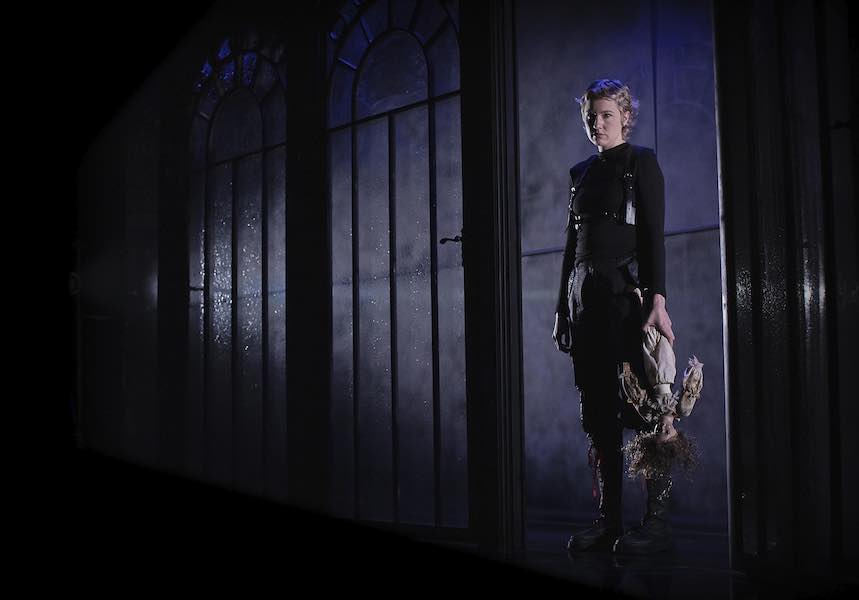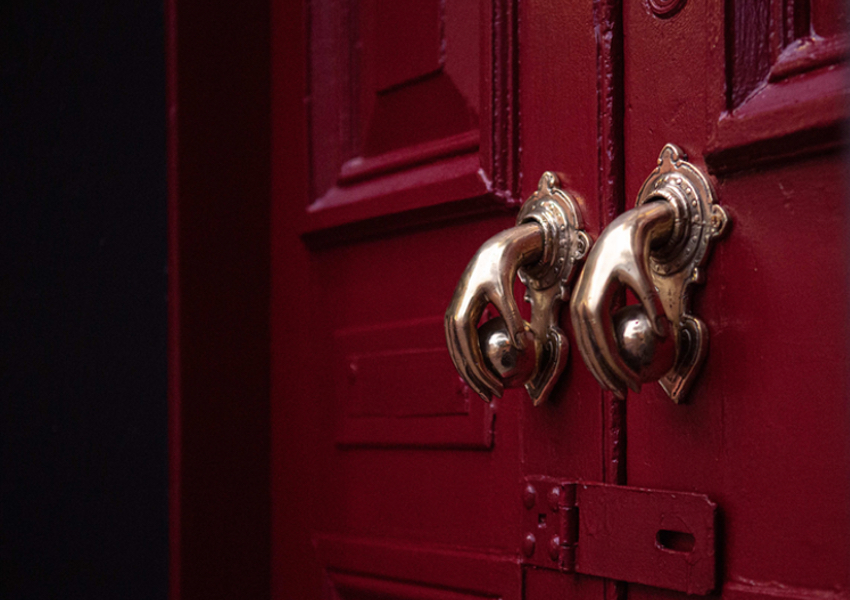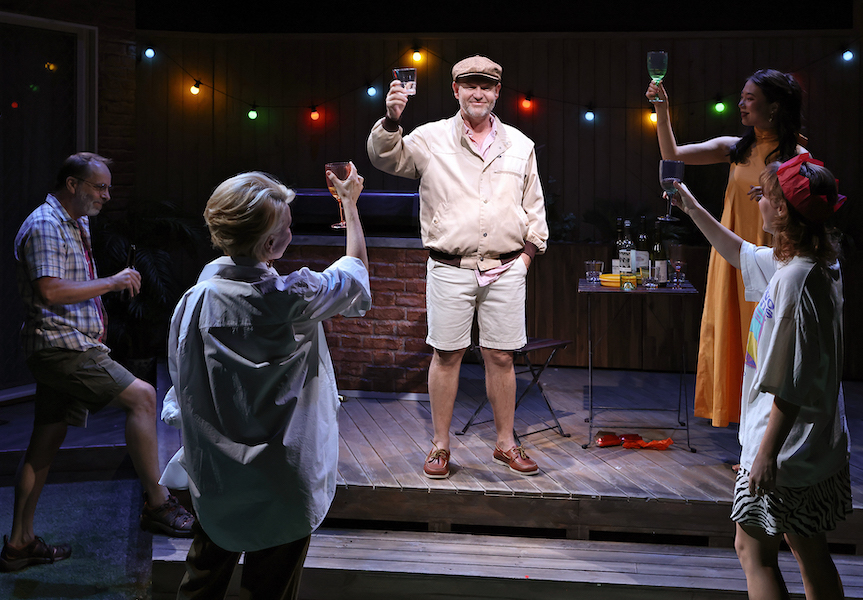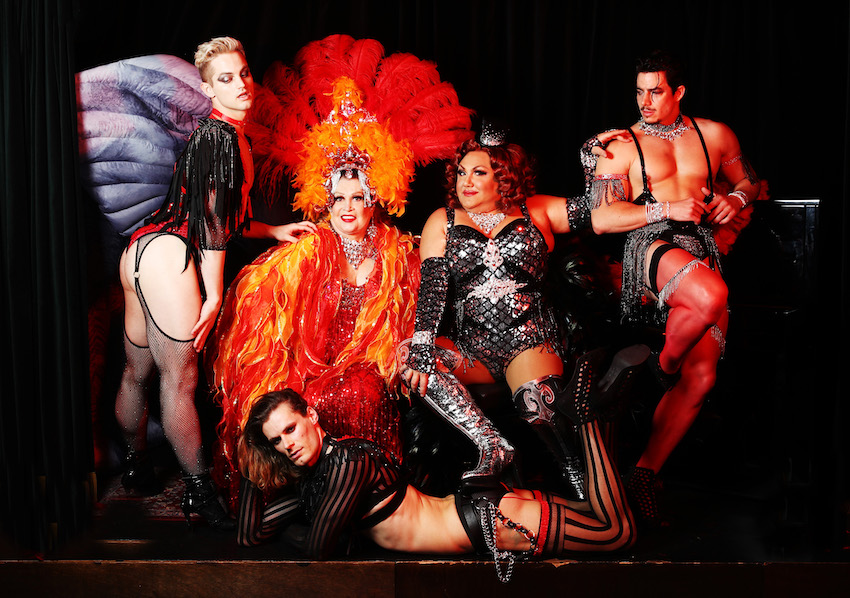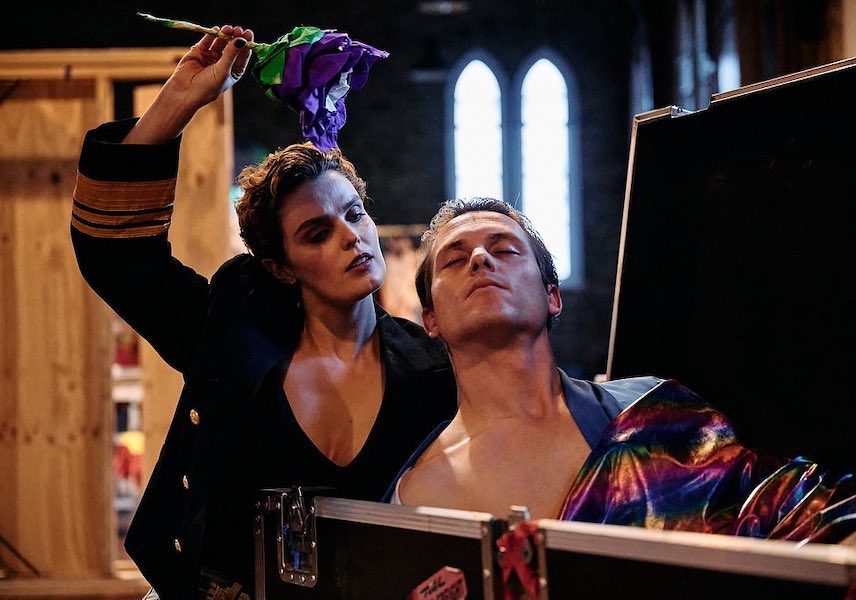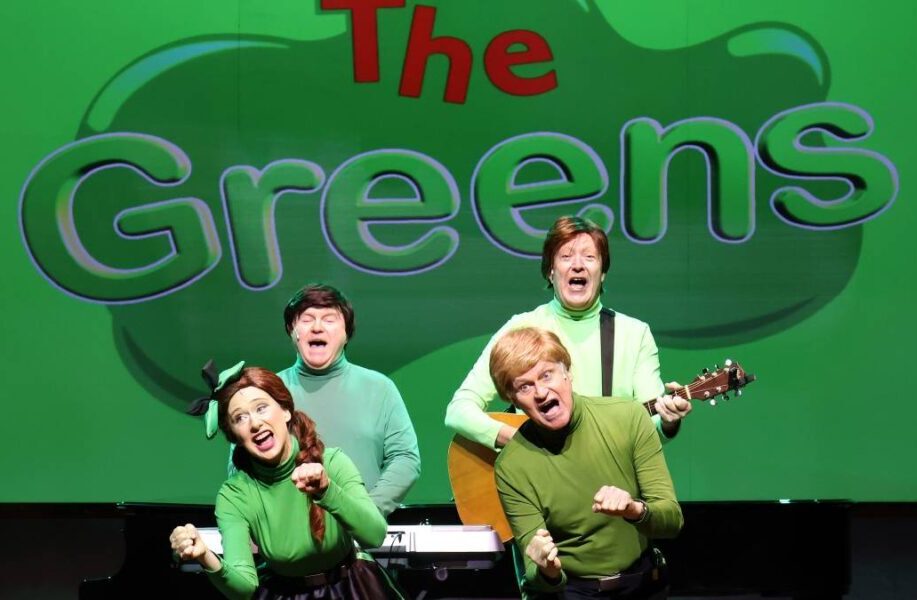
THE PITCHFORK DISNEY
With a blacker tint of comedy than that served up in the devil’s basement at Happy Hour, and more twisted than a python in a tumble dryer, The Pitchfork Disney was the 1991 debut for British writer Philip Ridley. Credited as the harbinger for a new style of ‘in-yer-face’ theatre, it presents a surreal tableaux of agoraphobic sibling duo Presley and Haley, and their cockroach-eating nightmares, Pitchfork and Disney. Sound ridiculous? A little – but its macabre, over-the-top content wouldn’t look too out of place on today’s television sets – a fact the writer has since labelled, ‘prophetic.’
This production first donned gimp mask at the Sydney Fringe Festival and as its antics proved a surprise hit, it’s now baaaaack for a limited encore season. We speak to performer Jessi LiBrocq ahead of opening night.
Dark, surreal, and marking a rupture in ‘traditional’ theatrical storytelling, The Pitchfork Disney is a pretty challenging play. Could you tell us what first drew you to it? There is nothing straightforward or one dimensional in the way [Philip] Ridley has constructed this play. The Pitchfork Disney raises more questions than it answers, which was a major drawing card for me as it makes the process of interpreting characters very exciting. It allows for so many creative possibilities for directors and actors and I know our production is continually making discoveries every time we rehearse.
Haley is the sister to Presley, and both live in a cut-off fantasy world. How have you prepared for this role? There are so many layers to all the characters in this play, which is one of the reasons it is such a successful script. We all had to do a lot of investigating and experimenting when it came to our characters. I was lucky that [director] Rachel [Chant] allowed us the opportunity to play with our characters and see what felt right for us. Haley is a complex character who leaps between being hysterically fragile and genuinely sweet, so finding realistic ways of portraying that has been a tricky but exciting process. I’m still figuring her out.
How important are festivals like the Fringe that for up-and-coming actors? Festivals are crucial for up-and-coming creatives as they allow the arts to be accessible in new and exciting ways, both to artists and audiences. Festivals create so many more opportunities for actors and other creatives, and make the projects we dream of doing a much greater possibility.
What’s one of your favourite lines from the play? “BOO!” You’ll just have to come along and see the show to find out why.
The playwright has also written a number of books for kids … I think this play demonstrates Ridley’s understanding of the way children think. Ridley explores the power of a child’s imagination and the inherent way children accept the words of their parents or equilvalent. Children have a profound ability to absorb the attitudes and ideas other their parent, often subconsciously, which Ridley explores in The Pitchfork Disney; and than what happens when those basic ideas are challenged.
And what is one image you hope audience members walk away with? There is a moment in the play when Pitchfork, a masked and physically imposing character, grabs hold of an unconscious, dummy-sucking Haley and unexpectedly begins to waltz her around the stage. It is an incredible bizarre image, where two opposites collide leaving the audience not knowing whether to laugh or cringe.
Dec 5-9, Sidetrack Theatre, 142 Addison Rd, Marrickville, $10-25, sidetrack.com.au




